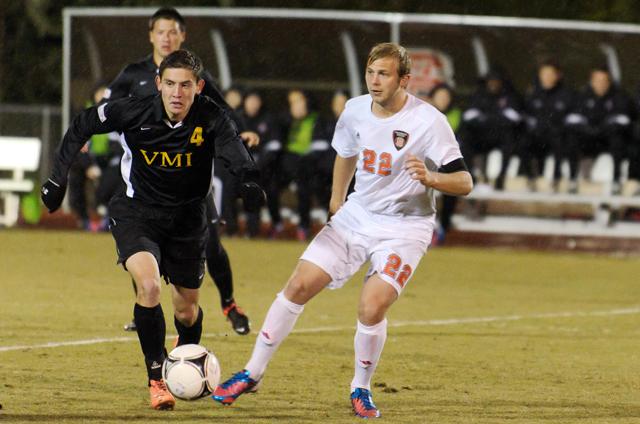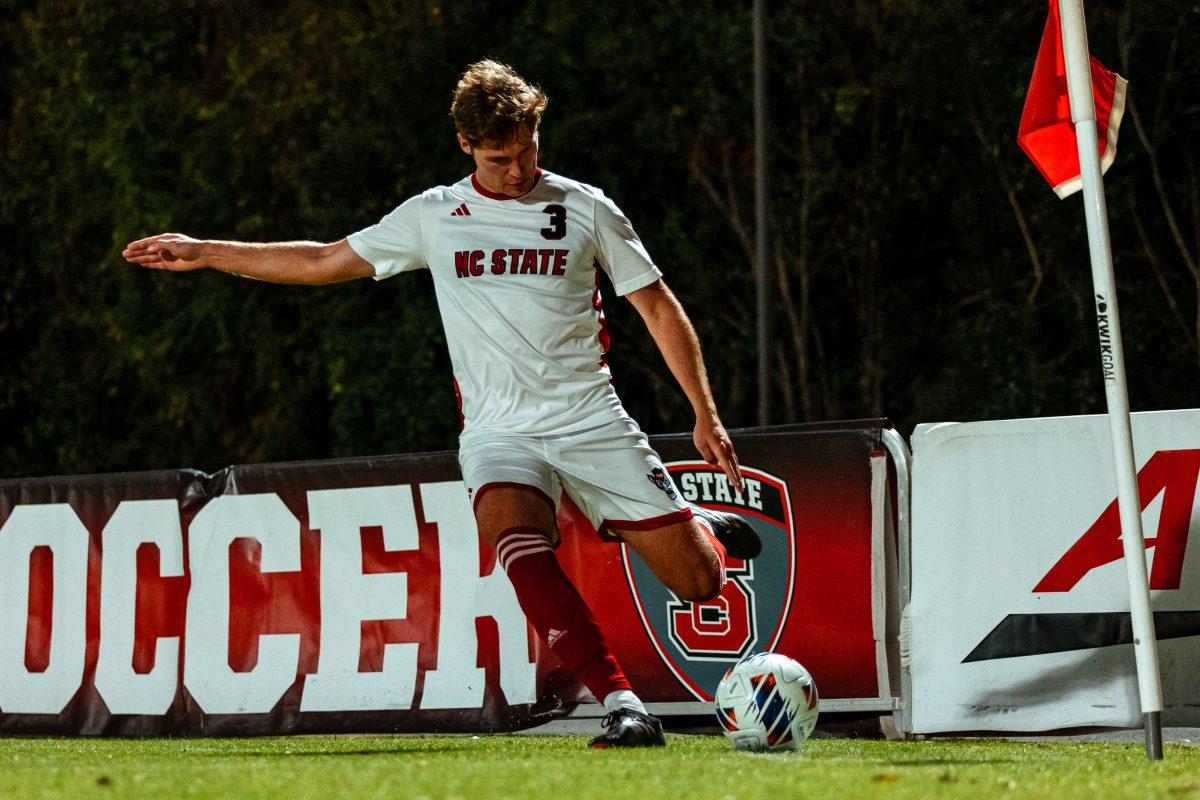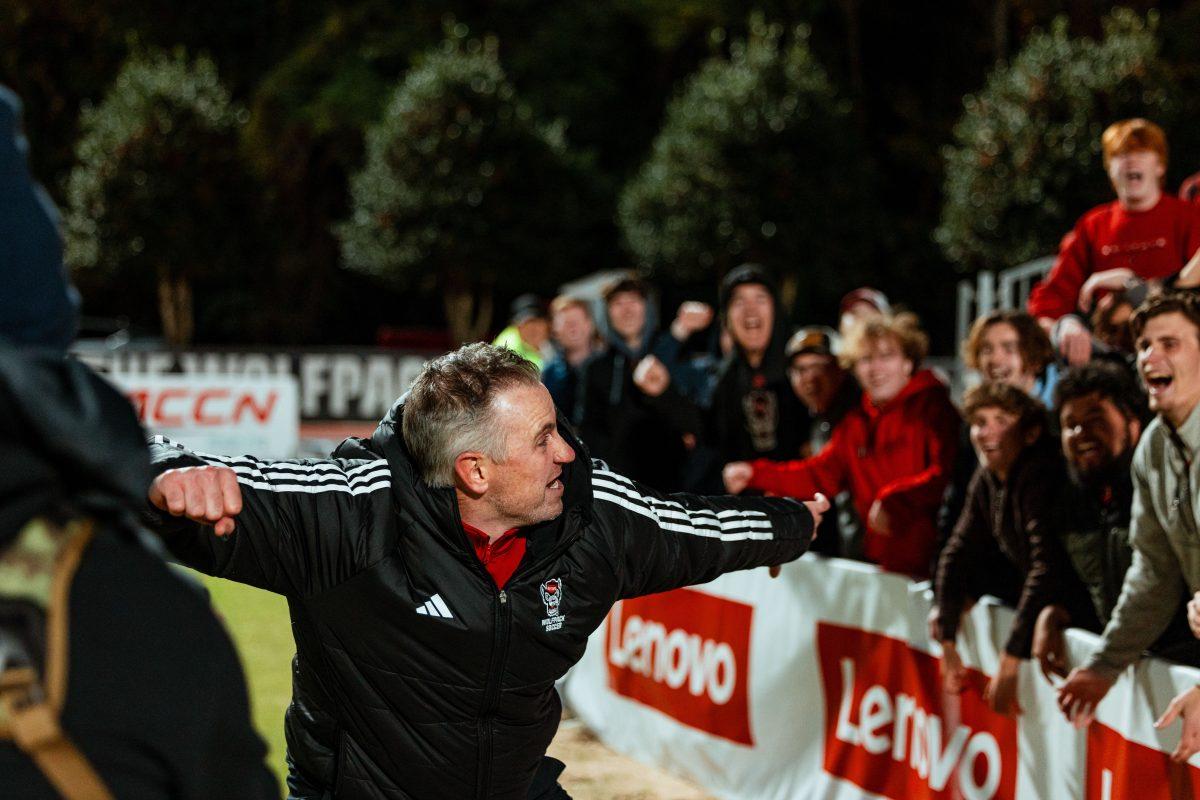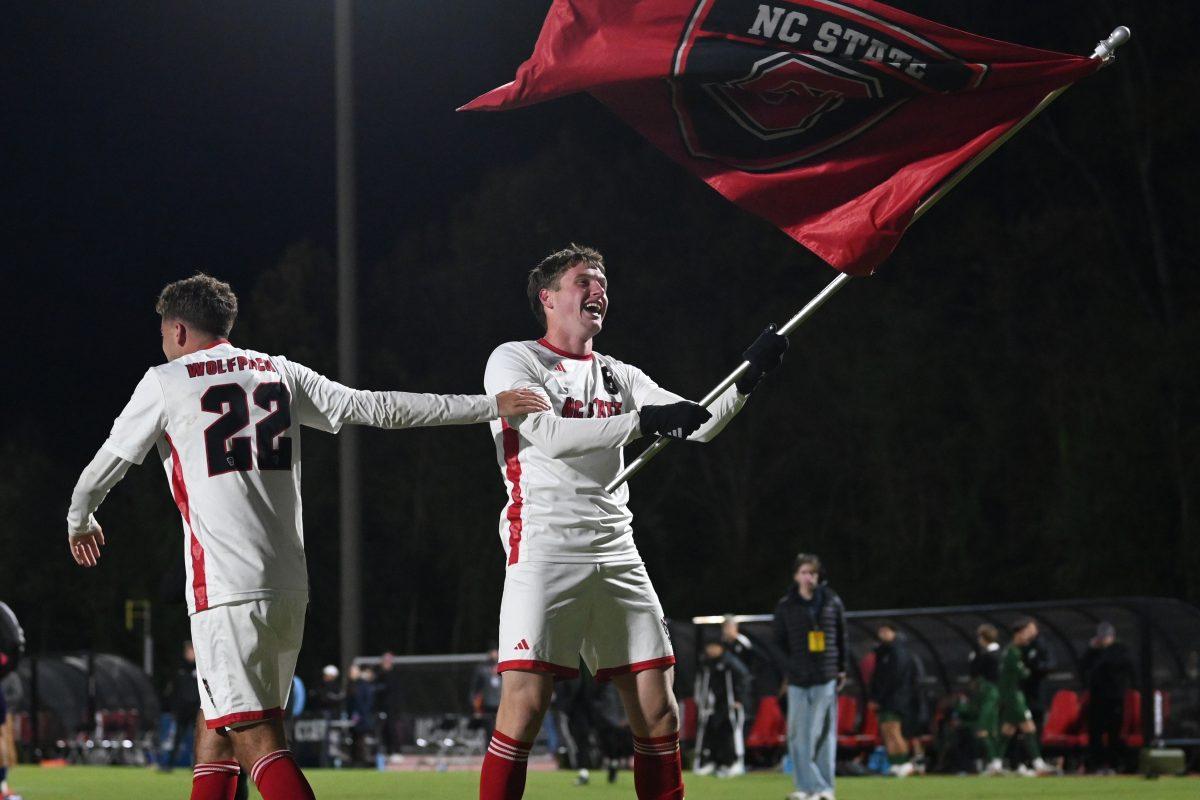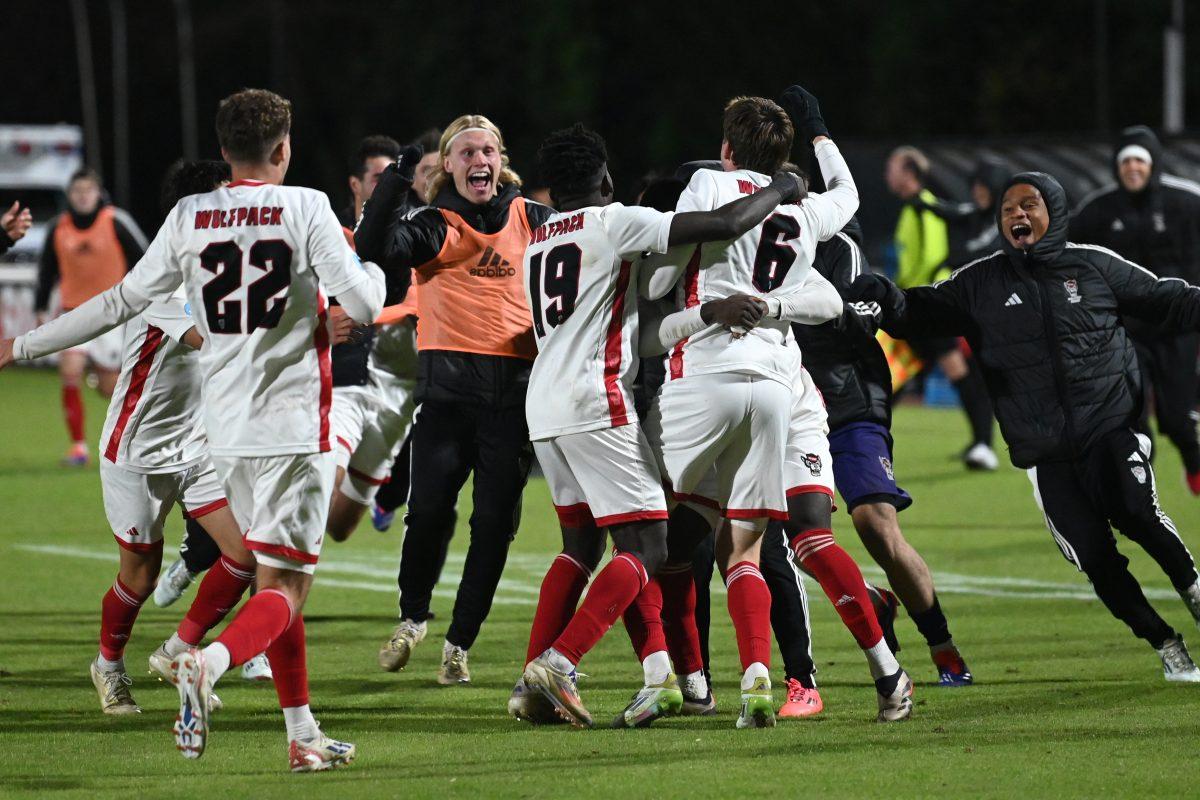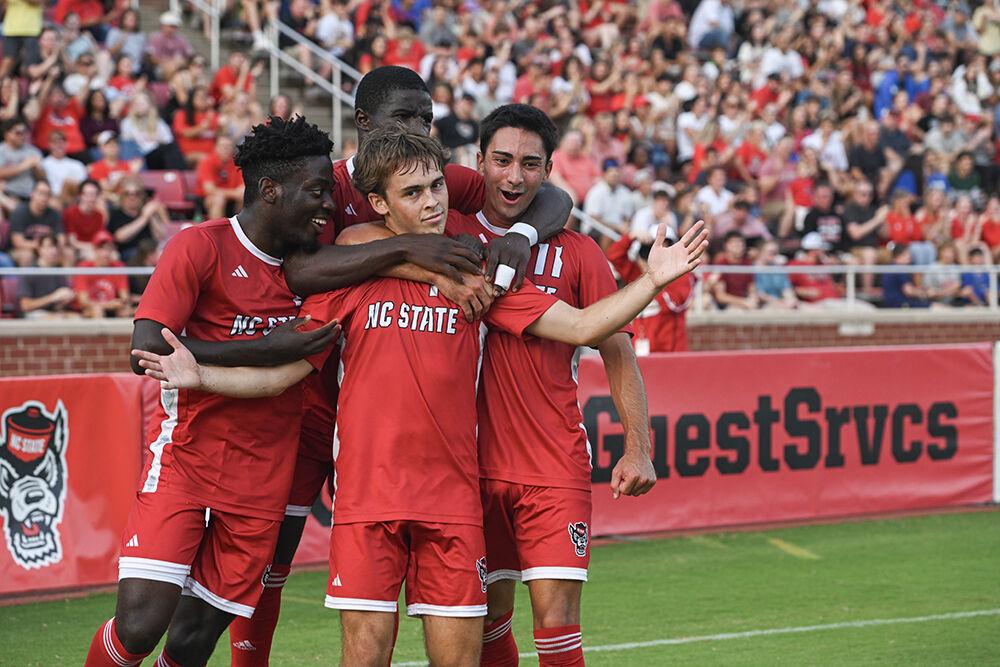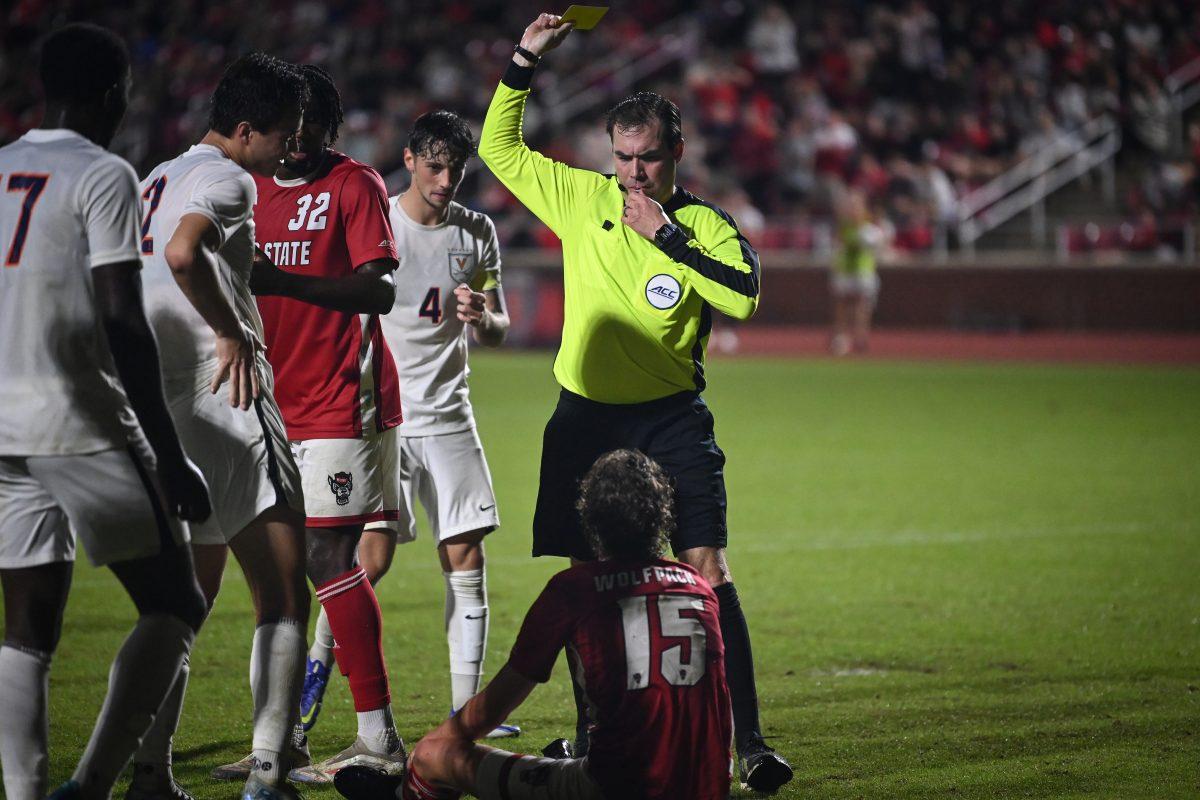In other countries, many soccer players are forced to make a choice. Due to the time-consuming nature of both soccer and academic advancement, many foreign soccer players have to decide which single opportunity they want to pursue.
N.C. State is able to offer international players opportunities that they wouldn’t get in their home country. Junior goalkeeper Fabian Otte decided to attend N.C. State for more than soccer.
“In Germany I studied, but I couldn’t play professional soccer at the same time because both are so time demanding. I had the choice of going pro or going to college,” Otte, a sport managment major, said. “Here I can combine both, playing on a good level and getting a degree.”
Otte was recruited by 30 different colleges. The Muenster native decided to commit to State after head coach Kelly Findley visited him and his family in Germany.
“Kelly Findley, our head coach, visited me in Germany and the way he talked to me, his goals for the soccer team here, and his goals for the soccer program at N.C. State impressed me so much and I committed to come to N.C. State.”
This past season, the men’s soccer team had five international players on the roster. Findley believes that international players give the program a boost.
“They come over and they have different kinds of experiences,” Findley said. “They can bring a different culture to your team which is valuable. Usually they are a little bit older than American players from high school, so there’s a benefit there and often times they can help you jump start a program because they are a little bit mature and a little bit older.”
After college, many international players are left with another choice.
Players must once again decide if they want to play professional soccer or find a job. The experience that they have gained on the playing field gives them an opportunity to play professionally and the degree gives them something to fall back on.
Lucrative professional soccer contracts can be hard to come by and many international soccer players choose to use their degree to find a job after they graduate. International players are familiar with English, but leave the university as a fluent speaker.
Along with academics, N.C. State offers first class training facilities for its soccer players. Last April, the Wolfpack Training Center opened, a state of the art collegiate athletics facility.
Otte compared the facilities at N.C. State to the professional leagues in Germany.
“The facilities here and the possibilities here in America is better than 95 percent of the amateur teams,” Otte said. “Our facilities can be compared to at least the second league in Germany. I would say probably first league, except for the stadiums.”
State has the facilities and academic opportunities to attract international recruits.
After adding two recruits to the 2013 recruiting class last week, Findley will be back on the recruiting trail next week. Findley will be traveling to New Zealand for 10 days to scout recruits.
Next season’s soccer team should feature at least four international players. Three of these international players will be seniors. Along with the international seniors, there are eight domestic seniors which should produce an experienced team.
“First of all I have to say we have a pretty mature team on the field. I definitely expect way more than the last two years,” Otte said. “We have the potential to have a great season next year.”


